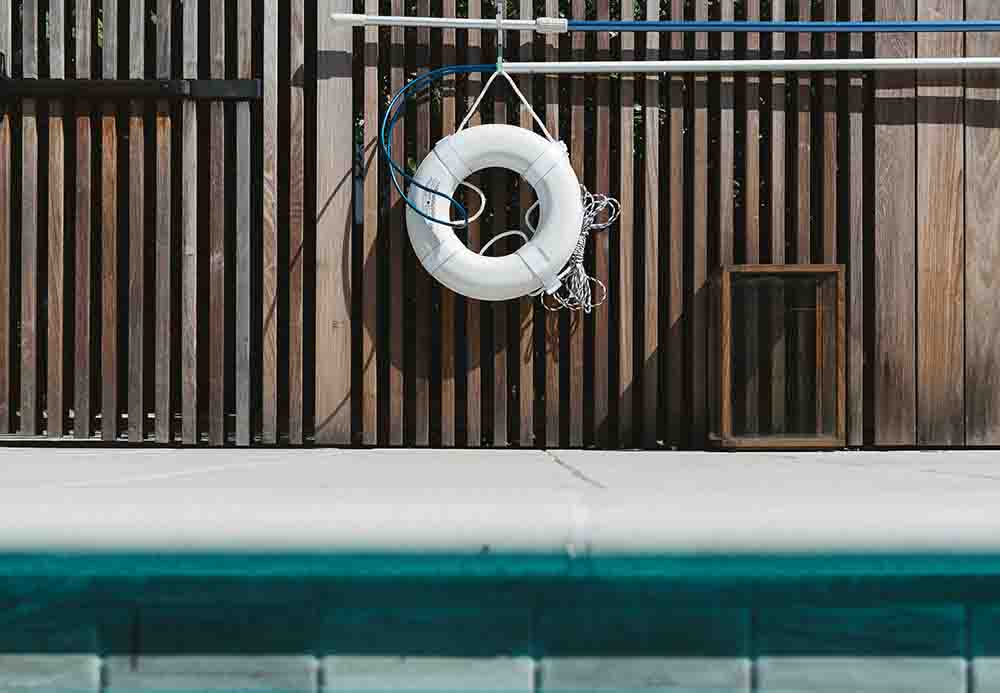A community pool is one of the most valued amenities for any Houston HOA—a spot where neighbors relax, kids splash, and families come together. But without clear HOA pool rules, that perk can quickly turn into a liability, a safety hazard, or a source of resident complaints.
For HOA board members and property managers, creating and enforcing strong, practical policies is essential to keeping the pool safe, compliant, and fun for all. This guide walks you through seven must-have HOA pool rules every community should adopt to prevent accidents, avoid conflicts, and boost community appeal.
Doing it right takes effort—and maybe a little help to keep the stress at bay.
1. Supervision for Non-Swimmers—Safety First
Children and inexperienced swimmers face the highest risk of drowning. But generic rules like “minors must be supervised” may violate the Fair Housing Act (FHA) by unfairly targeting families. Instead, base your HOA pool rules on swimming ability. Try this:
- Require non-swimmers of any age to be accompanied by a capable swimmer.
- Offer swim tests to check if a child or adult can swim solo.
- Post signs like “Non-swimmers must be accompanied by a responsible swimmer” and “Children under 14 should be supervised at all times” (advisory, not a hard rule).
It zeroes in on real risks, keeps you FHA-compliant, and makes safety practical—though setting up tests takes some legwork.
2. No Diving in Shallow Areas—Prevent Injuries
Diving into shallow water is a leading cause of pool-related head and spinal injuries. Prevent serious accidents with a simple, enforceable HOA pool rule:
- Ban diving in areas under 6 feet deep.
- Use clear signs: “No Diving—Shallow Water.”
- For extra safety, mandate feet-first entry in non-diving zones.
This policy protects residents and reduces legal risk—but it does require regular enforcement.
3. Guest Limits Based on Pool Capacity
Overcrowding not only ruins the experience—it can also violate safety codes. Ditch arbitrary guest limits and base them on your pool’s maximum legal capacity instead.
- Post signage: “Maximum Capacity: 30 People”.
- Use wristbands or key card access to control entry.
This rule keeps things friendly and safe, even if it means keeping an extra eye on things during busy pool hours.
4. No Glass Containers—Avoid Dangerous Breakage
Broken glass is a nightmare in pool areas—causing injury, pool closures, and even full drain-and-clean scenarios. One of the most critical HOA Pool rules is:
- Ban all glass containers near the pool.
- Use visible signage: “Glass Prohibited—Plastic Containers Only”.
It might take some watchfulness, but this simple rule helps avoid costly messes and keeps everyone safe. Consistency is key.
5. Pool Hours & Noise Limits—Respect the Community
Unrestricted pool access can lead to noise complaints, security issues, and even neighbor disputes. Set clear HOA pool rules for operating hours and noise control:
- Standard pool hours: “Open: 6 AM – 9 PM”
- Lock gates after hours for safety and liability protection. Add signage stating “No Swimming After Hours—Gate Will Be Locked.”
- Add “Quiet ours after 8 PM” if noise bugs neighbors.
This HOA pool rule keeps peace while maintaining pool access during reasonable times.
6. Clean Up & Respect Shared Spaces
A messy pool area breeds bugs, mold, and resident frustration. Make cleanliness part of your HOA pool rules to protect the amenity:
- Use signage: “Please clean up after yourself—Keep our pool beautiful”
- Install additional trash bins around the pool.
- Assign staff or volunteers to check the area daily.
It’s an easy win for keeping the pool pristine, though constantly picking up after others can take a toll on a volunteer board.
7. Follow Texas Pool Safety & Compliance Laws
Texas pool safety laws aren’t optional—and your HOA pool rules shouldn’t be either. Failure to comply can lead to fines, closures, or worse.
Your rules should include:
- Fencing at least 48 inches high with self-latching gates.
- Life-saving equipment like throw rings and reach poles.
- Proper chemical storage and safety signage.
- Annual compliance audits to catch issues before inspectors do.
Staying compliant takes time and diligence—but it’s critical for protecting your community.
HOA Pool Rules That Work—With Help That Wins
Enforcing clear, consistent HOA pool rules keep your pool safe, clean, and enjoyable while protecting your HOA from liability and resident complaints. But managing all the rules, enforcement, and compliance checks can be a lot—especially for volunteer boards.
That’s where RISE makes a difference.
We help HOAs create and enforce the right pool policies through:
- Professional policy guidance aligned with Texas safety standards.
- Ongoing support for compliance, enforcement, and pool operations.
- Digital tools to manage access and communication.
Whether you need help creating new rules or enforcing existing ones, RISE ensures your pool remains a stress-free asset—not a liability.
Want a safer, more enjoyable community pool? Contact RISE today at 713-936-9200 or get a quote to build smarter HOA pool rules that protect your residents, prevent conflicts, and boost community pride.







